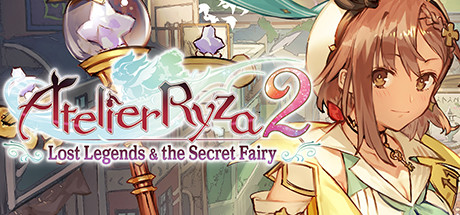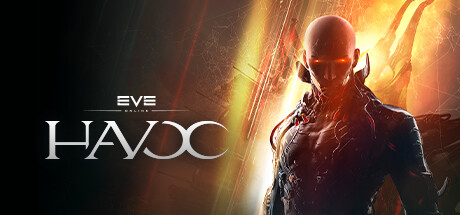Playtime:
1372 minutes
Atelier Ryza 2: Lost Legends & the Secret Fairy is the direct sequel to Atelier Ryza: Ever Darkness & the Secret Hideout, and it manages to build upon the charm and mechanics of its predecessor while evolving into a more refined and emotionally resonant RPG experience. Developed by Gust and published by Koei Tecmo, this installment in the long-running Atelier series continues the journey of Reisalin “Ryza” Stout as she transitions from a curious island girl into a confident and capable alchemist navigating a much wider world. Set three years after the first game, Ryza 2 transports the protagonist from her sleepy home island to the bustling royal capital of Ashra-am Baird, a vibrant setting brimming with secrets, ancient ruins, and new characters. The shift to an urban environment brings a welcomed change in atmosphere, offering a greater sense of scope and density in both narrative and exploration.
The story of Atelier Ryza 2 is notably more mature and emotionally layered than the first game. While still maintaining the series' signature optimistic tone, this sequel grapples with themes of growing up, changing friendships, and the weight of responsibility. Ryza, now more experienced, is contacted to investigate a series of ancient ruins connected by a mysterious phenomenon involving lost legends. Along the way, she encounters a mysterious creature named Fi, whose origins and fate become central to the plot. The narrative successfully balances lighthearted slice-of-life moments with more serious storytelling, and the return of familiar faces—like Lent, Tao, and Klaudia—adds emotional depth and a rewarding sense of continuity. The character development is more nuanced this time around, with returning party members showing growth that feels both earned and authentic.
The alchemy system, the cornerstone of the Atelier franchise, has been significantly improved in Ryza 2. The Linkage Synthesis mechanic retains the approachable yet deep puzzle-like system from the first game, but with added features that expand creative possibilities. Material loops, elemental alignments, and the ability to easily trace ingredient effects all contribute to an alchemy system that is more robust and intuitive than ever. New additions, like the Essence system—which allows players to alter item properties mid-synthesis—open up avenues for greater experimentation and power scaling. Moreover, the game provides a smoother curve in learning and applying alchemy, ensuring that newcomers can gradually master its complexity while veterans can dive into min-maxing high-level gear and items. Gathering, a core activity tied to synthesis, has also been enhanced through new field actions such as swimming, climbing, and riding creatures, making exploration feel more dynamic and rewarding.
Combat in Atelier Ryza 2 also receives a significant overhaul. The real-time turn-based hybrid battle system has been refined for better pacing and responsiveness. The Action Point (AP) and Core Charge systems return but are more fluidly integrated, encouraging strategic timing and team synergy. Characters can chain attacks together in real-time and unleash devastating skills once tactical gauges fill, giving combat a kinetic and satisfying rhythm. The game supports fast character switching mid-battle, and the AI of party members is generally competent, making team-based tactics more viable and enjoyable. While still not on the same level of complexity as traditional hardcore JRPGs, the combat strikes a nice balance between accessibility and tactical engagement, keeping encounters lively without becoming overly repetitive.
From a visual and auditory standpoint, Atelier Ryza 2 is one of the best-looking games in the series. Gust’s engine has been further polished, and the capital city, surrounding landscapes, and mysterious ruins are brought to life with bright colors, expressive lighting, and smooth animations. Character designs by Toridamono remain a standout, with distinct, stylish aesthetics that enhance the game’s appeal without falling into overt fan service. Fi, in particular, is a beautifully animated and endearing presence, adding emotional resonance to the story’s central mystery. The soundtrack is another highlight, delivering a whimsical yet sometimes melancholic score that perfectly complements the game’s shifting tones—whether you're gathering herbs in a sunlit forest, exploring ancient catacombs, or sharing a quiet conversation with a friend under the stars.
Despite its many strengths, Atelier Ryza 2 does carry a few shortcomings. The pacing can feel uneven at times, especially in the middle portion of the game, where repetitive dungeon mechanics and fetch-based quests can slow narrative momentum. Side quests, while occasionally touching, often lack variety and mostly serve as padding or shallow character development. Additionally, inventory and item management, particularly in late-game synthesis, can become overwhelming for players who haven’t kept a close eye on material quality and quantity throughout. The game also relies heavily on dialogue and worldbuilding, which might not appeal to players looking for high-stakes drama or fast-paced action. Still, these issues are minor in the broader context of what the game offers.
Ultimately, Atelier Ryza 2: Lost Legends & the Secret Fairy is a triumph in character-driven RPG design. It manages to deepen its alchemy systems, improve its combat, and expand its world while retaining the warmth, curiosity, and emotional honesty that made the first game so beloved. It’s a rare RPG that chooses introspection over spectacle, focusing on growth—not just of stats and items, but of its characters and their personal journeys. For fans of the Atelier series or those new to it, Ryza 2 stands out as one of the most well-rounded and rewarding entries, and it serves as a shining example of how sequels can build meaningfully on their predecessors without losing their heart.
Rating: 9/10
👍 : 1 |
😃 : 0









